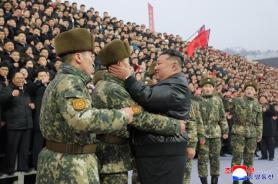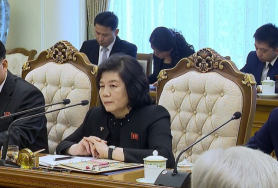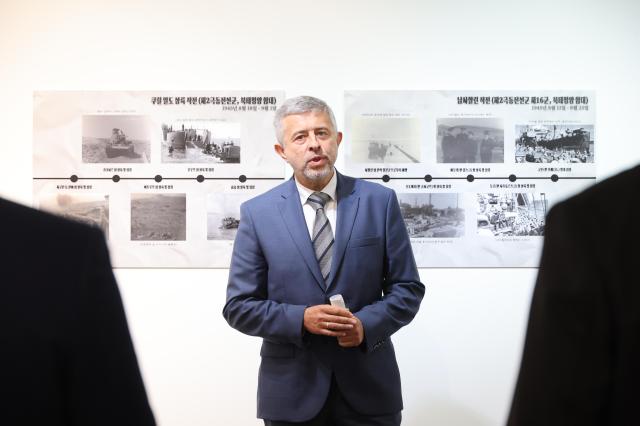
SEOUL, September 04 (AJP) - The Russian Embassy in South Korea opened an exhibition in Seoul on September 3 to mark the 80th anniversary of the end of World War II and the liberation of the Korean Peninsula. The event, titled "Remembering the Liberation of the Korean Peninsula," is being held at Gallery Kartina and runs through September 26.
Russian Ambassador Georgy Zinoviev used his welcome remarks to highlight what he called the decisive role of the Soviet Union in Japan's defeat. "Soviet operations dismantled Japan's defense within Korea and, though the Red Army stopped at the 38th parallel under agreement with the United States, its contribution was decisive," he said. "Soviet casualties in Korea numbered over 1,900."
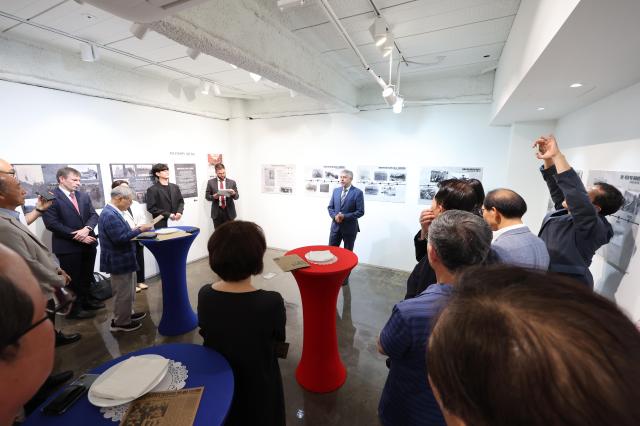
He contrasted the Soviet campaign with the atomic bombings of Hiroshima and Nagasaki. "Unlike the bombings, which had no real military significance and caused countless civilian deaths, the Red Army crushed the largest Japanese group on the continent and destroyed its military-industrial base," he said. "It also shut down Japan's programs for mass destruction weapons, particularly biological weapons, saving millions of lives."
Former South Korean Ambassador to Russia Woo Yoon-keun also spoke at the opening. "Korea's liberation was primarily the result of the Korean people's long struggle," he said. "But Russian territory was a base for our independence fighters, and the Soviet Union's role has often been minimized while the contribution of the United States has been overstated. I hope this exhibition helps set the record straight."
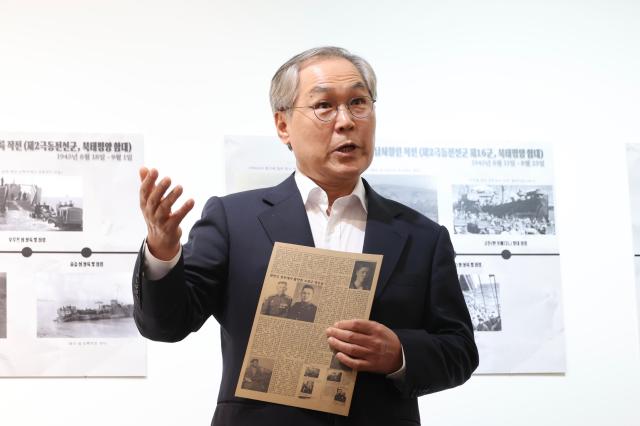
Woo, a former Democratic Party floor leader, described the effort to strengthen ties with Russia as consistent across administrations. "From President Kim Dae-jung through Roh Moo-hyun, Moon Jae-in and now Lee Jae Myung, our governments have pursued engagement with Russia and the northern region," he said. He also noted former President Roh Tae-woo's role in opening ties, saying he respected that contribution despite being from another political camp.
Calling the modest exhibition space "symbolic," Woo added, "There is a saying that when a small space is filled, blessings come. Seeing so many gathered here makes me feel that South Korea–Russia relations will also be blessed."
The event takes place at a time when ties between South Korea and Russia remain strained. Seoul has joined Western sanctions over Russia's 2022 attack on Ukraine, restricting technology exports and financial flows. At the same time, Moscow continues to look eastward for partners, deepening cooperation with North Korea, including a security treaty signed in 2024 and infrastructure projects such as a road bridge across the border.
Trade links remain, though they have weakened. Russia was South Korea's tenth-largest export destination before the war in Ukraine, and discussions on a bilateral Economic Partnership Agreement have been on the table since 2019.
The exhibition features archival photographs, documents, and records illustrating the Soviet Union's wartime campaign in Asia and its role in dismantling Japan's colonial rule on the peninsula.
Copyright ⓒ Aju Press All rights reserved.


